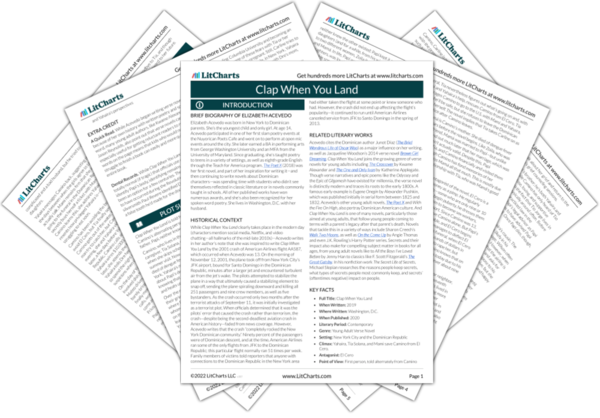The call is emotional for Camino—she has no idea what Yahaira is going to be like, and she’s already come up with lots of reasons to dislike her sister. However, when Camino finally comes face to face with Yahaira, all she can see is what she’s gaining. In a way, she is gaining a connection to Papi, since Yahaira resembles Papi so much. But more significantly, Camino is suddenly able to see something good coming from Papi’s death. Finally, she knows the truth—and she has the opportunity to form a relationship with her sister, someone she had no idea existed.
